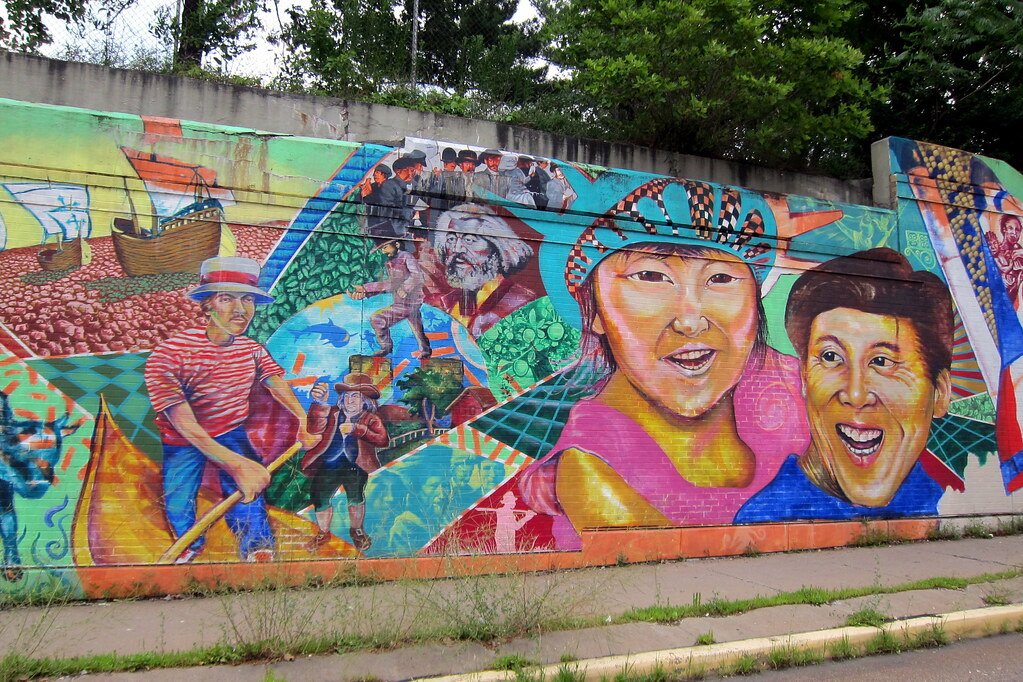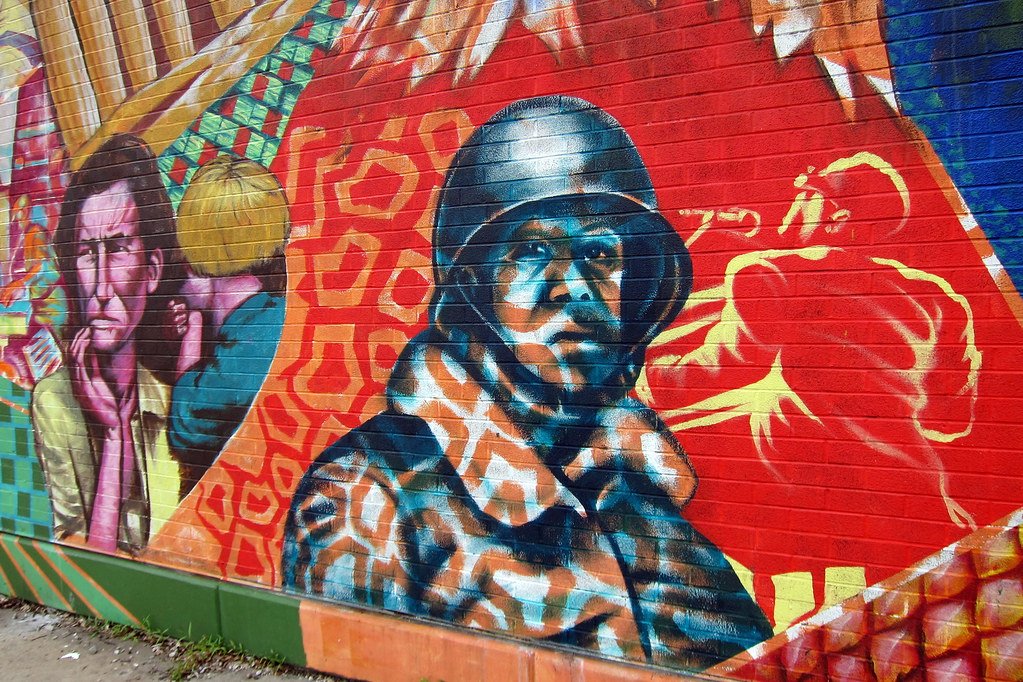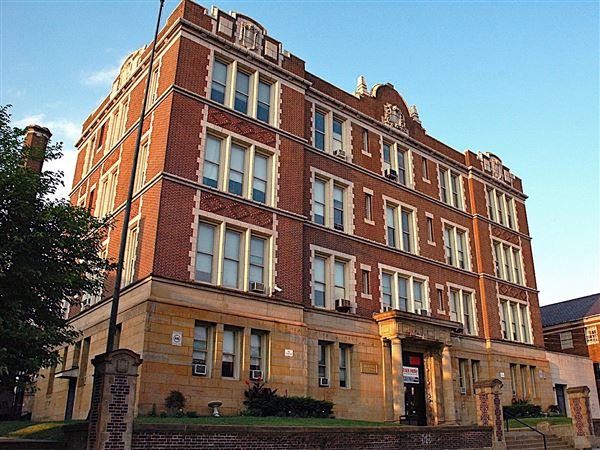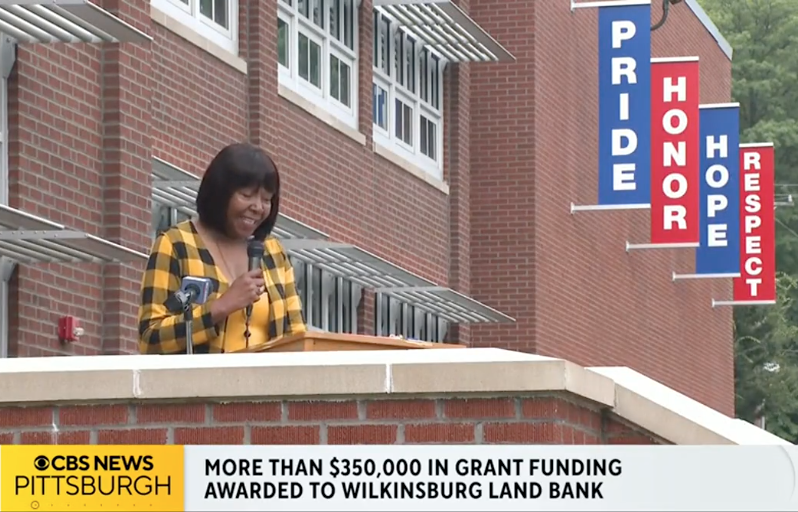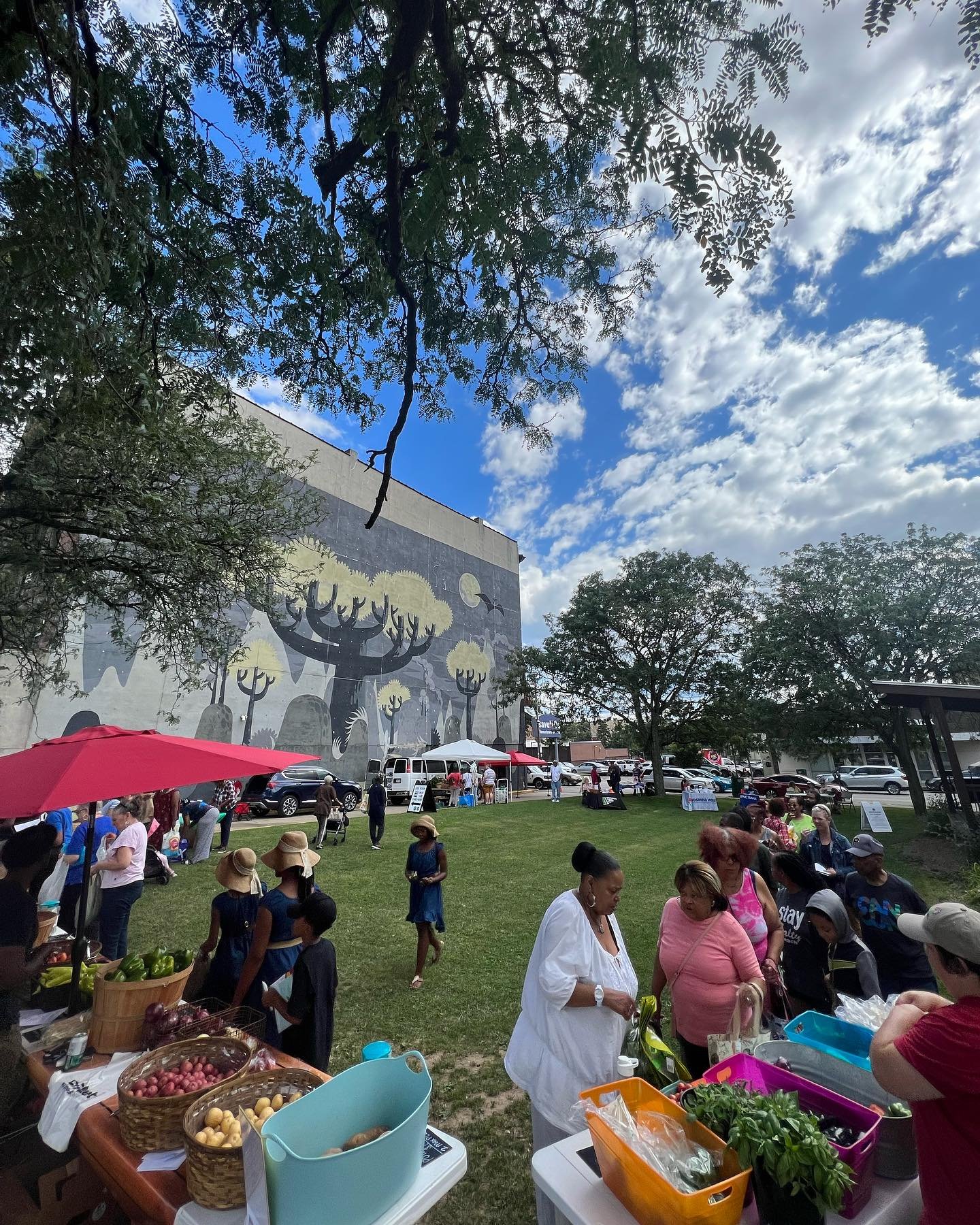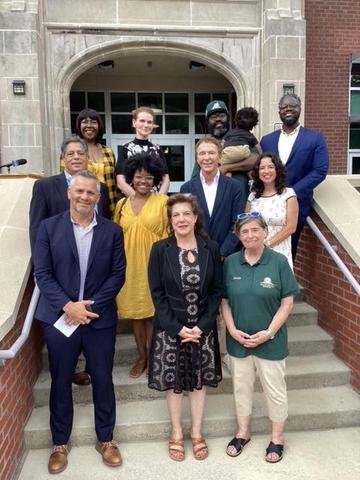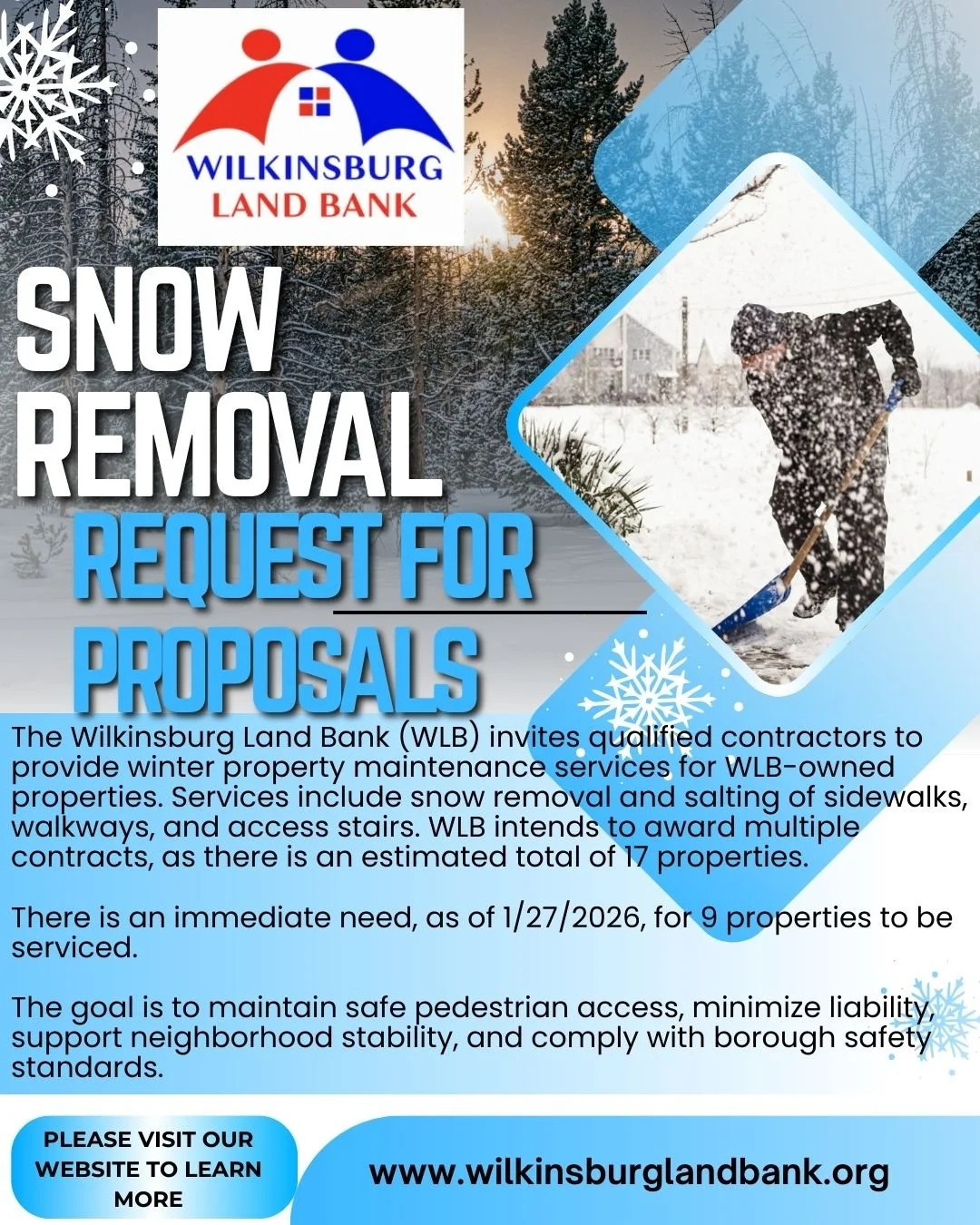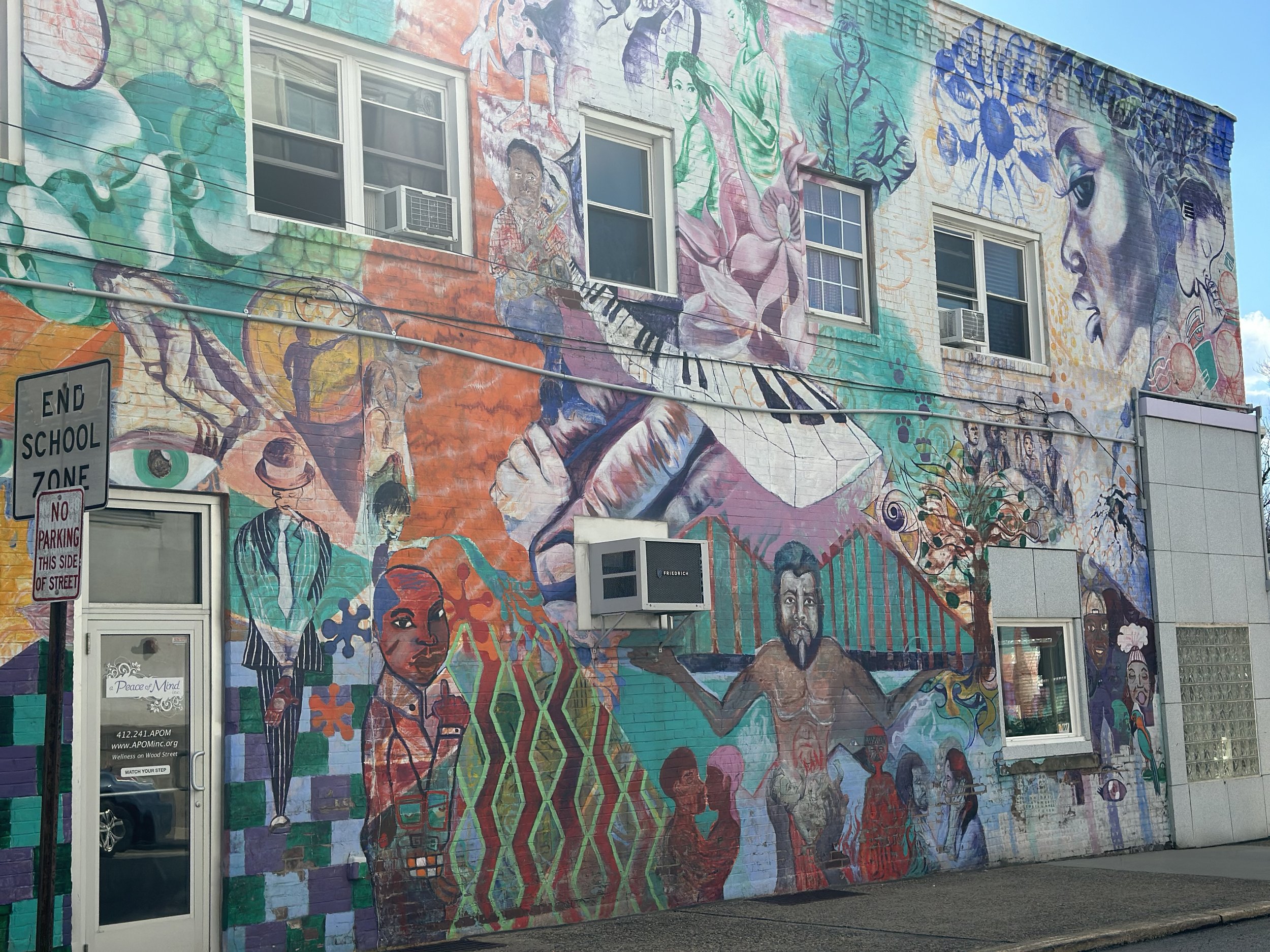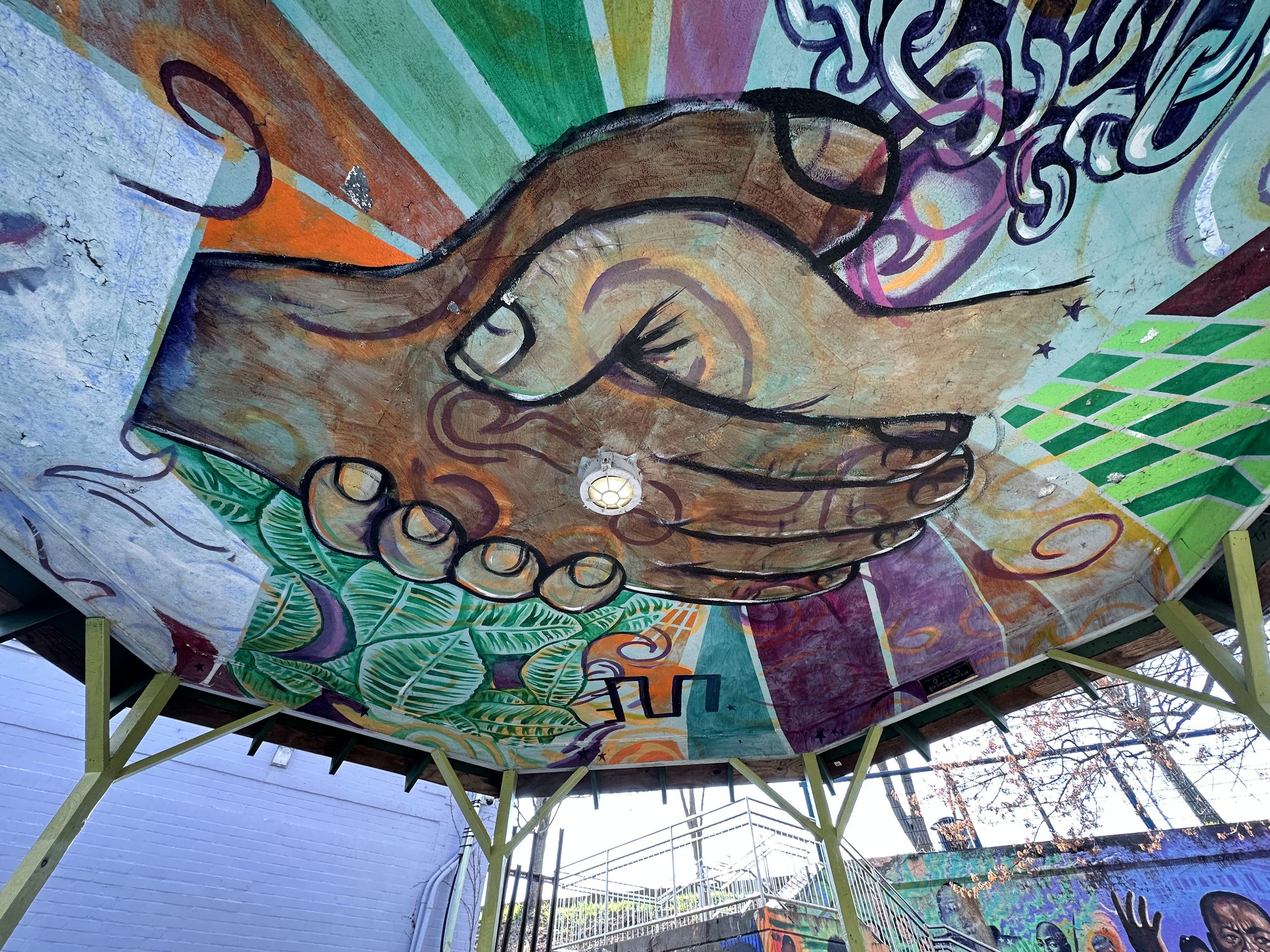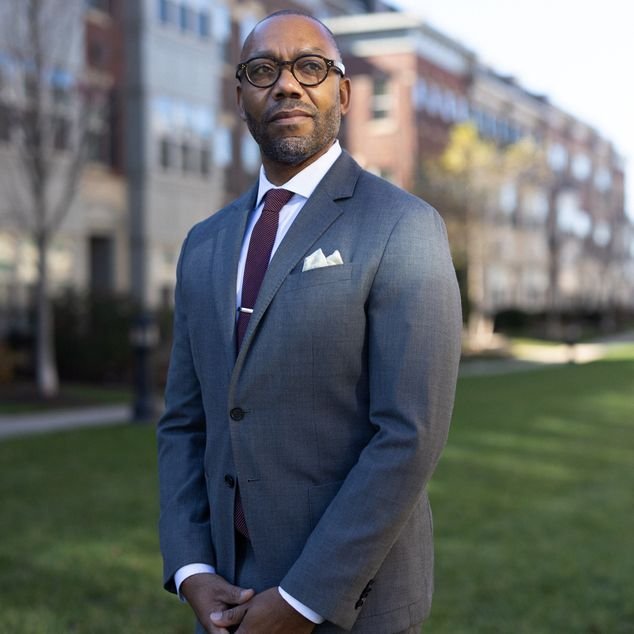Committed to the Residential Revitalization of Wilkinsburg
Qualified Contractors Needed!
Deadline: Immediate and Rolling
Upcoming Events
The mission of the Wilkinsburg Land Bank is to transform our abandoned, tax delinquent, and vacant properties into homes for new owners, fostering racial and economic equity while enabling economic mobility for Wilkinsburg renters.
Our empty houses can become a boon for our community, by creating affordable home-ownership opportunities without displacement, supporting underserved communities, minority contractors, and young families.
Vacant houses can be transformed into welcoming homes for young families, which will revitalize our schools, our local businesses, and create cleaner, safer communities, while the profits that come from renovations stay within the local community.
Mission
Enable Affordable Homeownership
Reduce the Tax Burden on Existing Wilkinsburg Property Owners by creating more property owners and more property value, thus easing the costs for everyone
Provide Wealth Building Opportunities for Small, Local Contractors
Generate Economic Mobility Opportunities for Underserved Communities
Prevent Displacement from Gentrification by Offering an Affordable Solution for Homeownership
Goals
How it works
-

1. Title Clearance
WLB clears the title and becomes owner of the property making it available for homebuyers
-

2. Stablization
WLB carries out stabilization work needed and cleans up any debris, junk, pests and animals
-

3. House is Listed
House is listed and shown to first-time home buyers, small local contractors, or community-based redevelopers
-

4. House is Sold
Depending on property condition, the house will be sold to a first time home buyer, a local contractor, or a community based redeveloper
“There’s a lot of programs, including opportunity zones, that encourage the investment in the brick-and-mortar and streets and infrastructure. And let’s be clear that if you invest in place and not people, that’s encouraging gentrification.”
— Andre Perry
Why Wilkinsburg?
Because of its location, access to public transit, status as a walking community, unique opportunities for economic mobility, and the charm of its historic housing stock, Wilkinsburg has been a very desirable place to live for its residents.
The Wilkinsburg Land Bank creates an avenue that welcomes restoration and rehabilitation while being mindful that it is the small-town, neighborly charm of Wilkinsburg that is its backbone.
Rethinking Black Wealth
“If you would wave a magic wand at the homes of Black neighborhoods and raise the prices, guess what you would do. You would lock people out from buying. There’s a lot of programs, including opportunity zones, that encourage the investment in the brick-and-mortar and streets and infrastructure. And let’s be clear that if you invest in place and not people, that’s encouraging gentrification. And so we do need corrections—we’ve got to find a way to restore value in ways that allows renters to become homeowners, so that Black people have an opportunity to invest and benefit from being in those communities.”
Andre Perry - Rethinking Black Wealth
Responding to the Wilkinsburg Community
The WLB is working to ensure that Wilkinsburg’s appreciating real estate market will benefit the people who currently live here.
Renovating existing buildings for affordable housing & creating new pathways to ownership & preserving what we have are what Wilkinsburgers told Allegheny County Chief Executive Sara Innamorato they most want, during her All-In Allegheny Listening Sessions.
Get Involved
There are a number of ways to get involved with the Wilkinsburg Land Bank. Contact us to learn how you can help make meaningful change in the Wilkinsburg community.
FAQs
What is a Land Bank & what does it do?
Land Banks are empowered to get title to the abandoned properties that are not available without a judicial intervention and offer them for sale to new owners, be they renters looking to become homeowners or contractors and developers who will then sell them to homebuyers.
What does it mean to get a title? Why does it matter?
Title means ownership and thus control. Until there is a new owner, these houses can not be bought, renovated, or lived in.
Why are the abandoned houses not being addressed in Wilkinsburg?
The Wilkinsburg Borough does not own homes or have title to homes and therefore cannot legally buy, sell, or renovate abandoned properties. There is no mechanism in place for Wilkinsburg, or any other government entity, to get title to its abandoned properties. Wilkinsburg does not own the abandoned properties. There are ways for sophisticated real estate investors to access ownership to these properties, but those options involve complicated and expensive legal processes that are not easily accessible to the public—because they also require all of the funding up front. Because the vast majority of people who want to become homeowners need a mortgage to buy a house, none of these properties are available to be purchased by homeowners without the intervention of a Land Bank.
Why would a community need a Land Bank?
A community would need a Land Bank if there are a lot of abandoned properties. Only 19 states in the US have adopted Land Bank legislation—and those are the states who most experienced the industrial contraction in the 1970’s and 1980’s—states like Michigan, Ohio, Pennsylvania, Illinois etc.
When people had to leave these regions to find work elsewhere, they couldn’t take their houses with them. Many times, the folks left and assumed that “the City” or “the Township” or “the Borough” would get it. But that’s not what the law allows, and until Land Bank legislation was adopted in PA in 2012, there was no systematic mechanism for communities to get title to the abandoned properties and redevelop them.
A community needs a Land Bank when there is a decades-long backlog of abandoned properties that the community desperately needs redeveloped and back on the tax rolls to increase the liveliness and vitality of its neighborhoods, its business districts, its school system and its bottom line.
